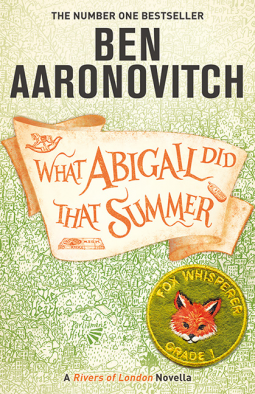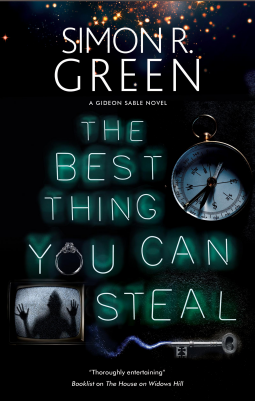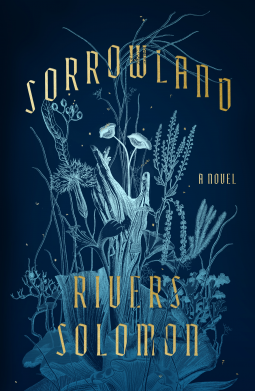What Abigail Did That Summer, by Ben Aaronovitch (Subterranean)
Lies Sleeping, Ben Aaronovitch (DAW)
Best Thing You Can Steal, by Simon R. Green (Severn House)
I very much suspect that one night, Simon R. Green, Charles Stross, and Ben Aaronovitch met in a pub, got drunk together, and started telling tall tales about creepy things happening in London. Stross’s “Laundry Files” novels center on a secret agency tasked with keeping Lovecraftian Elder Gods in check. In Aaronovitch’s “Rivers of London,” waterways ancient and modern possess spirits, foxes have their own security forces, and a not-so-secret agency investigates supernatural crimes. Elsewhere I’ve reviewed some of the “Laundry Files” novels (they’re terrific fun, so check them out if you haven’t already).
My introduction to Aaronovitch’s enchanted London was reading Lies Sleeping and What Abigail Did That Summer simultaneously. It wasn’t intentional, but it turned out brilliantly. In the former, police constable and apprentice wizard Peter Grant investigates an ongoing mystery from the agency’s headquarters, “The Folly.” This is actually well into the series, which I didn’t realize, and there’s a massive amount of backstory, but I found that just hanging out with Peter was vastly entertaining. Really, a summer evening picnic, trying to get the spirit of Old Father Thames to remember where King Arthur left his sword? Delicious fun! Abigail of What Abigail Did That Summer is Peter’s cousin, and her own adventure took place back in 2018. Missing kids, a seriously psychotic haunted house, and a security detail provided by talking foxes were just a few of the marvels. Then Abigail appears in Lies Sleeping as an extraordinarily perceptive student, which makes sense given what she went through years ago. It’s no wonder the magical bosses insisted she receive proper training!
And then there’s Green’s Best Thing You Can Steal, which features a thief and con man extraordinaire, going under an assumed name. He specializes in stealing things like a ghost's clothes or a photo from a country that never existed. Now he’s after a television set that shows the future and that most delicious of prizes, revenge against “the worst man in the world.” He’s put together a team that includes a ghost who remembers being human, a man wearing the armor of the angels he’s slaughtered, the possibly human embodiment of random luck, and his ex-girlfriend, who can make technology fall in love with her. Armed with a ballpoint pen that can stop time and a skeleton key that can open any lock, not to mention their special talents and wits, he and his team go up against poltergeist attack dogs, golem guards, shaped curses, and a villain who can foresee their every move.
Each of these books is fast-paced, chock-full of inventive imagination and quirky characters. They also share a blend of off-beat bad guys, love for London and the English language, and humor that strikes me, as an American, as quintessentially British. Which is not to say they share a setting, magical systems, or histories, because each is as individual as the thoroughly skillful author who created it, only that if you enjoyed one you’ll likely find delight in the others.









